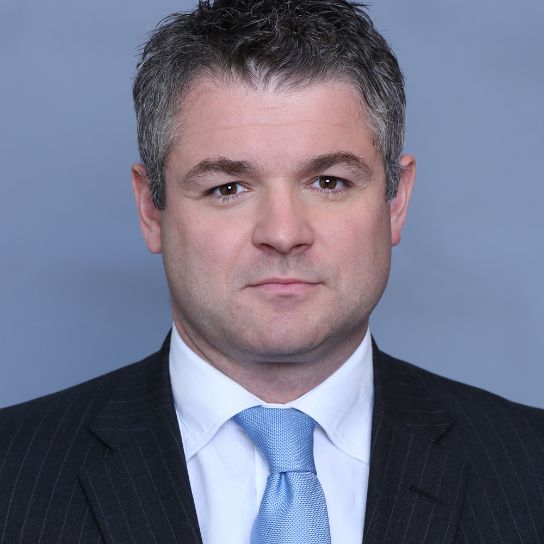In this article we examine the recent case of J Murphy & Sons Ltd v Beckton Energy Ltd [2016] EWHC 607 in which the English High Court reaffirms that the courts will rarely intervene to prevent a beneficiary from calling on an on-demand bond. The case also highlights that recovery of liquidated damages under an amended FIDIC Yellow Book Contract is not subject to an Engineer's agreement or determination.
J Murphy & Sons Ltd v Beckton Energy Ltd [2016] EWHC 607 involved a claim by the Claimant contractor Murphy (the "Contractor") against the Defendant employer Beckton (the "Employer") for declaratory relief. The proceedings related to a threatened call on an "on-demand" performance bond (the "Bond") by the Employer. The court refused to grant the declaratory and injunctive relief sought, finding that the Employer was entitled to recover liquidated damages from the Contractor. Importantly, the Court held that it was not a pre-requisite to recovery for the engineer appointed under the amended FIDIC Yellow Book Contract (the "Contract") to have agreed or determined the amount of the Contractor's liability for liquidated damages.
Background
With works running 409 days' late, the Employer gave the Contractor 23 days' written notice of its intention to make a demand under the Bond in respect of its claim for liquidated damages in the sum of £8,274,000.
The Contractor sought an expedited declaration from the Court that, until there had been an agreement or determination by the engineer appointed under the Contract in respect of the amount of liquidated damages, the Contractor was not obliged to pay any liquidated damages to the Employer.
The case raised two questions, namely whether:
- the contractual construction of sub-clauses 8.7 and 2.5 of the Contract required an agreement or determination by "the Engineer" ("Issue 1") and;
- a call on the bond by the Employer would be fraudulent or not ("Issue 2").
The Contract
Clause 2.5 of the FIDIC Yellow Book sets out the procedure to be followed in circumstances where an employer considers itself entitled to any payment under a provision of the contract, or otherwise in connection with the contract, and/or to any extension of the defects notification period. This provision prevents an employer from summarily withholding or otherwise deducting any sums due for payment to a contractor.
Sub-clause 3.5 deals with "Engineer's determinations". It provides that the Engineer shall consult with each party in an endeavour to reach an agreement but if no agreement is reached, shall make a fair determination of the amount payable.
These clauses had not been amended by the parties. Clause 4.2 of the Contract required the Contractor to procure an on-demand performance bond, which it had done. However, this clause had been amended by the parties and was substantially different to the standard clause used in the FIDIC Yellow Book. The parties' clause entitled the Employer to make a claim under the bond where the Contractor failed to pay any amount due and owing to it.~
The Contract specified various milestone dates and the time for completion of the works. Pursuant to clause 8 of the Contract, if the Contractor failed to meet these dates it was liable to pay delay liquidated damages. However, the parties had also amended clause 8, deleting the section which provided that the Contractor's liability to pay delay liquidated damages was subject to clause 2.5.
Issue 1 – Was an Agreement or Determination required by "the Engineer"?
The Employer argued that it was entitled to a payment of liquidated damages under sub-clause 8.7 and that this was not subject to the regime set out in clauses 2.5 or 3.5. The Contractor disagreed and argued that the Employer was not entitled to claim liquidated damages in circumstances where it had not given the notice required by clause 2.5 or procured the Engineer's determination required by clause 3.5.
While the Judge agreed that on its face, clause 2.5 appeared to be put "in the widest of terms", as it referred to "any" payment under "any" Clause of the conditions "or otherwise in connection with the Contract", she held that on a more careful analysis, the rights to liquidated damages under clause 8.7 were not subject to the mechanism set out in sub-clauses 2.5 and 3.5. Instead, she found that subclause 8.7 set out "a self-contained regime for the trigger and payment of delay damages", which did not suggest that any additional regime, such as that contained in Clauses 2.5 and 3.5 was to be imported.
In the circumstances all that was required to trigger payment under the bond, after notice from the Employer to the Contractor, was a written demand stating that the Contractor had breached the Contract, with particulars, and the amount claimed. There was no need to inquire into the correctness of the claim or to present proof of its validity. This meant that the bond had been correctly called upon by the Employer.
Issue 2 – Would a call on the bond by fraudulent?
Even though a decision of the second issue was unnecessary because of the decision on the first issue, the Judge nevertheless noted that:
"the fundamental flaw in the Contractor's approach (was) to confuse liability on the part of the Contractor to pay delay damages under clause 8.7 with the agreed mechanism for resolution of the parties' dispute in sub-clauses 2.5 and 3.5 which leads to enforcement."
Thus, a requirement to follow the procedure in clauses 2.5 and 3.5 was not a condition of liability for delay damages, but rather a condition of subsequent enforcement. The Judge found that once the interplay and respective roles of clauses 8.7.4 and clause 2.5 were understood, the fraud exception was not engaged. The Judge clarified that she would have concluded that it was not fraudulent for the Employer to make a call on the Bond if it had been necessary for her to make a determination on the issue.
Key contacts
Legal Notice
The contents of this publication are for reference purposes only and may not be current as at the date of accessing this publication. They do not constitute legal advice and should not be relied upon as such. Specific legal advice about your specific circumstances should always be sought separately before taking any action based on this publication.
© Herbert Smith Freehills 2024



